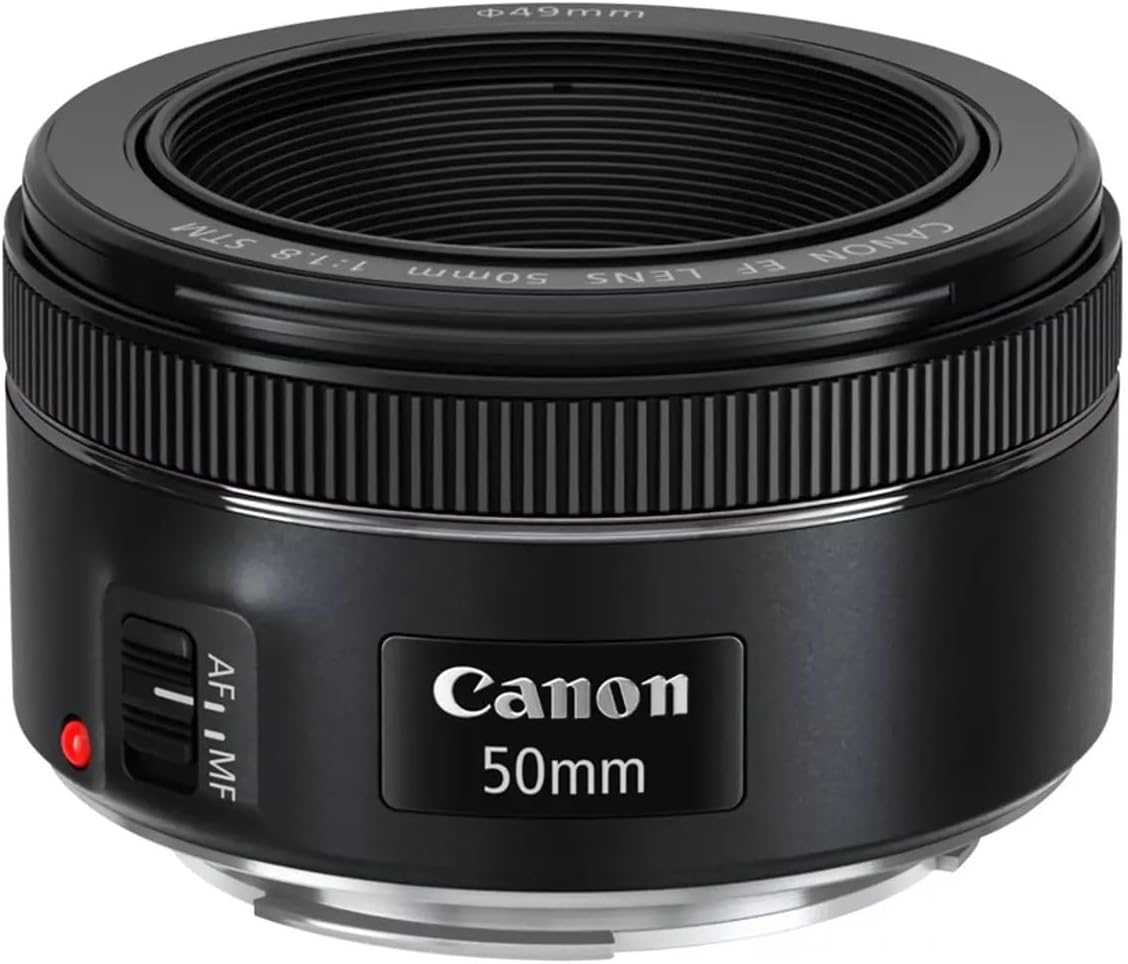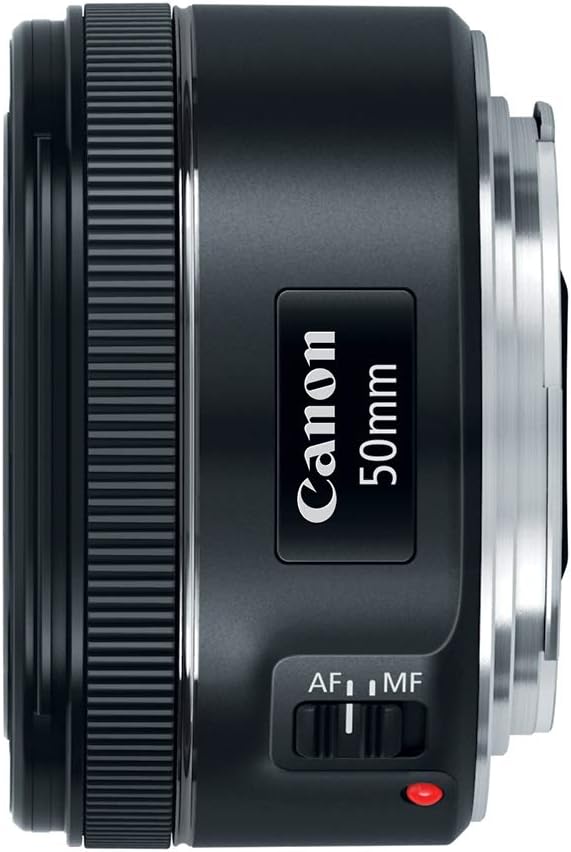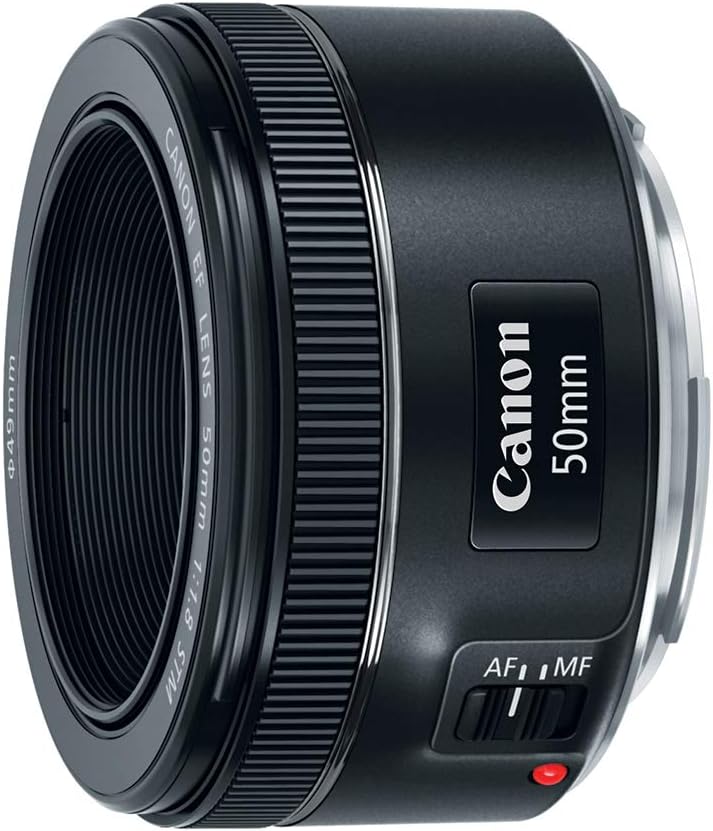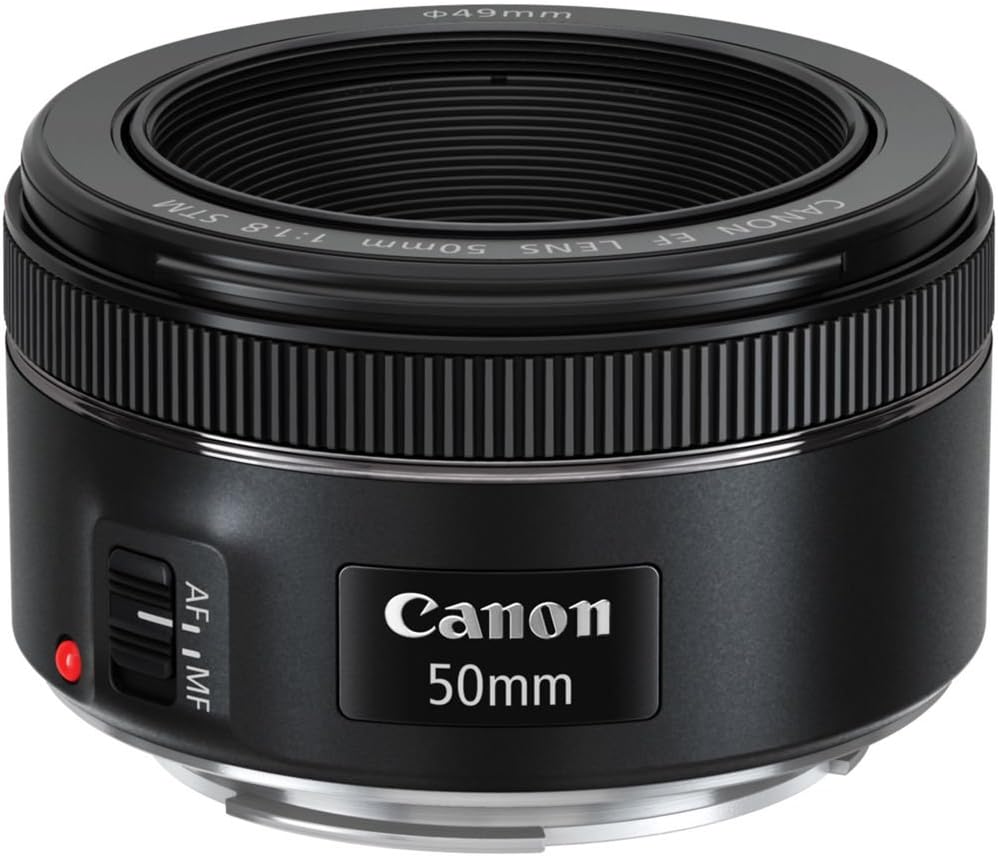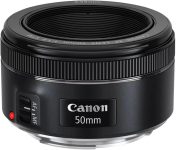
Black Friday Canon EF 50mm f/1.8 STM Lens Camera Lens Review – Oemiu
Black Friday Canon EF 50mm f/1.8 STM Lens Review
Black Friday rolls around, and the hunt for incredible deals begins. For photographers, this often means scouring the internet for lenses, and one lens that consistently pops up as a must-have for beginners and pros alike is the Canon EF 50mm f/1.8 STM. Why? Because it’s a remarkably affordable and versatile prime lens capable of producing stunning images. This review dives deep into what makes this “nifty fifty” so special, especially when you can snag it at a discounted Black Friday price. We’ll explore its features, performance, compare it to alternatives, and help you decide if it deserves a spot in your camera bag.
The Allure of the 50mm: Why It’s a Photographer’s Staple
The 50mm focal length holds a special place in the hearts of photographers. It’s often called the “standard” focal length because it roughly approximates human vision. This natural perspective makes it incredibly versatile for a wide range of photographic genres. Whether you’re shooting portraits, street photography, landscapes, or even product photography, the 50mm can deliver excellent results. But the Canon EF 50mm f/1.8 STM isn’t just about the focal length; it’s about the combination of that focal length with a very wide aperture. The f/1.8 aperture allows for shallow depth of field, creating beautiful bokeh (the soft, blurry background effect) that isolates your subject and adds a professional touch to your images. This is particularly useful for portraiture, where you want to draw the viewer’s attention to the person you’re photographing. The wide aperture also excels in low-light conditions, allowing you to capture images without resorting to high ISO settings, which can introduce noise and grain into your photos. Furthermore, using a prime lens, like this 50mm, forces you to be more creative and intentional with your framing. You can’t just zoom in or out. You have to physically move to compose the shot, which will help you develop your skills as a photographer. The Canon EF 50mm f/1.8 STM camera lens offers a blend of affordability, image quality, and versatility that is hard to beat. For those just starting out or seasoned pros needing a lightweight option, it’s a compelling choice.
Decoding the Specs: What Makes the Canon EF 50mm f/1.8 STM Tick
Let’s break down the specifications of the Canon EF 50mm f/1.8 STM and understand what each feature brings to the table. The “EF” designation indicates that it’s compatible with Canon’s full-frame EOS DSLRs, but it can also be used on Canon’s APS-C cameras, where it will have an effective focal length of 80mm (due to the crop factor). The “50mm” refers to the focal length, as we discussed earlier, providing a natural perspective. The “f/1.8” is the maximum aperture, which is the opening in the lens that allows light to pass through. A wider aperture (smaller f-number) allows more light to enter the camera, enabling faster shutter speeds and shallower depth of field. The “STM” stands for Stepping Motor, which refers to the autofocus system used in the lens. STM motors are known for their smooth and quiet operation, making them ideal for video recording. The lens construction consists of 6 elements in 5 groups, which is a relatively simple design that contributes to its lightweight and compact size. It also has a 49mm filter thread, allowing you to attach filters like UV filters (for protection) or polarizing filters (to reduce glare). The minimum focusing distance is 0.35 meters (1.15 feet), allowing you to get relatively close to your subject. Weighing in at only 160 grams (5.6 ounces), it’s incredibly portable and won’t weigh you down on long shoots. Understanding these specifications is crucial for appreciating the capabilities and limitations of the lens. This 50mm camera lens provides considerable versatility and excellent low-light performance. This combination of attributes makes it a fantastic choice for a wide range of photography scenarios, especially given its compact size and affordability.
| Feature | Specification |
|---|---|
| Mount | Canon EF |
| Focal Length | 50mm |
| Maximum Aperture | f/1.8 |
| Minimum Aperture | f/22 |
| Lens Construction | 6 elements in 5 groups |
| Diaphragm Blades | 7 |
| Minimum Focusing Distance | 0.35m (1.15 ft) |
| Filter Thread | 49mm |
| Weight | 160g (5.6 oz) |
Image Quality Deep Dive: Sharpness, Bokeh, and Aberrations
Now, let’s talk about image quality, which is arguably the most important aspect of any lens. The Canon EF 50mm f/1.8 STM delivers surprisingly sharp images, especially considering its price point. Center sharpness is excellent, even wide open at f/1.8. Corner sharpness is slightly softer, but it improves as you stop down the aperture to f/2.8 or f/4. This is a common characteristic of many lenses, and it’s generally not a significant issue unless you’re shooting landscapes where edge-to-edge sharpness is critical. The bokeh produced by the lens is creamy and pleasing, creating a beautiful separation between the subject and the background. The 7-blade diaphragm contributes to smooth and rounded bokeh balls, which are especially noticeable in out-of-focus highlights. However, like many wide-aperture lenses, the Canon EF 50mm f/1.8 STM does exhibit some chromatic aberration, particularly at wider apertures. Chromatic aberration appears as color fringing (usually purple or green) around high-contrast edges. This is a common optical flaw that can be corrected in post-processing software like Adobe Lightroom or Photoshop. The lens also exhibits some vignetting (darkening of the corners), especially at f/1.8. This can be either a desirable effect, adding a subtle artistic touch to your images, or an undesirable one that needs to be corrected. Again, vignetting can be easily addressed in post-processing. Overall, the image quality of the Canon EF 50mm f/1.8 STM is excellent for its price. The sharpness, bokeh, and character of the lens make it a joy to use, and the minor optical flaws can be easily corrected in post-processing. This lens is an excellent choice for anyone looking to improve the image quality they capture, especially in low-light conditions or when trying to create a shallow depth of field. The combination of factors makes this particular camera lens a winner for beginner and intermediate photographers.
In the Field: Real-World Applications and Shooting Scenarios
The Canon EF 50mm f/1.8 STM is a versatile lens that excels in a variety of shooting scenarios. For portrait photography, it’s a fantastic choice for capturing flattering headshots and environmental portraits. The wide aperture allows you to create a shallow depth of field, blurring the background and drawing attention to your subject. The 50mm focal length is also flattering for faces, avoiding distortion and providing a natural perspective. For street photography, the compact size and lightweight design of the lens make it ideal for carrying around all day. The 50mm focal length is also well-suited for capturing candid moments and street scenes. The wide aperture allows you to shoot in low-light conditions, such as at dusk or in dimly lit streets. For food photography, the lens allows you to get close to your subject and capture details with sharpness and clarity. The shallow depth of field can also be used to isolate specific elements of the dish and create a visually appealing composition. For product photography, the lens can be used to capture detailed images of small objects, such as jewelry or cosmetics. The wide aperture allows you to create a shallow depth of field, blurring the background and drawing attention to the product. Even for landscapes, despite not being the typical wide-angle choice, it can be used to capture specific details or create a more intimate perspective. Remember to consider the crop factor if you are using an APS-C sensor camera, as the 50mm lens will act more like an 80mm lens. The fast aperture of the Canon EF 50mm f/1.8 STM camera lens proves its versatility, allowing you to adapt to different scenarios and produce high-quality images. It’s a great lens to have in your kit, no matter what you’re shooting.
Alternatives and Comparisons: Is the Nifty Fifty Right for You?
While the Canon EF 50mm f/1.8 STM is an excellent lens, it’s not the only option available. It’s important to consider alternatives and compare them to see if another lens might be a better fit for your needs and budget. One popular alternative is the Canon EF 50mm f/1.4 USM. This lens offers a wider maximum aperture of f/1.4, allowing for even shallower depth of field and better low-light performance. However, it’s also significantly more expensive and larger than the f/1.8 STM. Another option is the Yongnuo 50mm f/1.8, which is a budget-friendly alternative that offers similar performance to the Canon EF 50mm f/1.8 STM. However, the build quality and autofocus performance may not be as good. If you’re using a Canon mirrorless camera, you might consider the Canon RF 50mm f/1.8 STM. This lens is designed specifically for Canon’s RF mount and offers excellent image quality and autofocus performance. However, it’s only compatible with Canon mirrorless cameras. For those willing to consider third-party options, the Sigma 50mm f/1.4 DG HSM Art is an excellent lens, offering superb image quality and build quality. However, it’s also significantly more expensive and heavier than the Canon EF 50mm f/1.8 STM. Ultimately, the best lens for you will depend on your budget, your needs, and the type of photography you do. The Canon EF 50mm f/1.8 STM is a great starting point for most photographers, offering excellent value for money. However, if you need a wider aperture, better build quality, or compatibility with a specific camera system, you might want to consider one of the alternatives. When assessing the different models, it’s crucial to factor in the intended usage and how a specific camera lens will fit into the existing photography equipment setup. The affordability and performance of the STM make it a tough lens to beat, particularly on Black Friday.
Black Friday Considerations: Snagging the Best Deal
Black Friday is undoubtedly the best time to score a great deal on the Canon EF 50mm f/1.8 STM. Prices often plummet significantly, making it an even more attractive option for photographers on a budget. However, to ensure you get the best deal, it’s essential to do your research beforehand. Start by comparing prices at different retailers, both online and in-store. Check major online retailers like Seller, B&H Photo Video, and Adorama, as well as Canon’s official website. Don’t forget to check local camera stores as well, as they may offer competitive deals. Sign up for email newsletters from these retailers to receive notifications about Black Friday deals as soon as they are announced. Also, consider setting price alerts on websites like CamelCamelCamel to track price fluctuations and receive alerts when the price drops to your desired level. Be aware of potential scams or misleading deals. If a price seems too good to be true, it probably is. Check the retailer’s reputation and read reviews before making a purchase. Ensure that the lens is new and comes with a warranty. Also, be aware of shipping costs and return policies. Some retailers may offer free shipping or extended return periods during Black Friday. Finally, don’t wait too long to make your purchase. Black Friday deals are often limited in quantity and can sell out quickly. If you see a deal you like, grab it before it’s gone. By doing your research and being prepared, you can snag the Canon EF 50mm f/1.8 STM at a bargain price this Black Friday and take your photography to the next level. This particular camera lens is a reliable choice that yields excellent results when properly used.
Frequently Asked Questions (FAQ)
Is the Canon EF 50mm f/1.8 STM a good lens for beginners?
Absolutely! The Canon EF 50mm f/1.8 STM is an excellent lens for beginners for several reasons. First, it’s incredibly affordable, making it a low-risk investment for those just starting out in photography. Second, it’s a prime lens, which means it has a fixed focal length. This forces you to move around and think more creatively about your composition, which can help you develop your photography skills. Third, the wide aperture of f/1.8 allows you to experiment with shallow depth of field and create beautiful bokeh, which can add a professional touch to your photos. Finally, it’s lightweight and compact, making it easy to carry around and use in various situations. While other lenses may offer more features or better performance, the Canon EF 50mm f/1.8 STM provides an excellent balance of price, image quality, and versatility for beginners.
What are the best uses for the Canon EF 50mm f/1.8 STM?
The Canon EF 50mm f/1.8 STM camera lens is a versatile lens that can be used for a wide range of photographic genres. It’s particularly well-suited for portrait photography, where the wide aperture allows you to create a shallow depth of field and isolate your subject from the background. It’s also great for street photography, thanks to its compact size and natural perspective. You can use it for food photography, capturing detailed images of dishes with a pleasing bokeh. Product photography also benefits from its sharpness and ability to create shallow depth of field, highlighting the details of small objects. While not a typical choice, it can even be used for landscape photography, focusing on specific details or creating a more intimate perspective. The fast aperture and general utility makes it a great option for a multitude of applications.
Is the STM autofocus system better than the USM autofocus system?
The “STM” and “USM” designations refer to different types of autofocus motors used in Canon lenses. STM (Stepping Motor) is generally smoother and quieter than USM (Ultrasonic Motor), making it ideal for video recording, as it minimizes autofocus noise that can be picked up by the camera’s microphone. USM, on the other hand, is often faster and more responsive for still photography, especially in lenses with complex autofocus systems. However, the performance differences between STM and USM can vary depending on the specific lens. Some newer USM lenses are just as quiet as STM lenses, and some STM lenses are surprisingly fast. In the case of the Canon EF 50mm f/1.8 STM, the STM system is more than adequate for most photography needs, providing smooth and accurate autofocus.
Does the Canon EF 50mm f/1.8 STM work on APS-C cameras?
Yes, the Canon EF 50mm f/1.8 STM lens is fully compatible with Canon APS-C cameras. However, due to the crop factor of APS-C sensors (typically 1.6x), the effective focal length will be different than on a full-frame camera. On an APS-C camera, the 50mm lens will have an effective focal length of 80mm (50mm x 1.6). This means it will provide a narrower field of view, making it more suitable for portraiture and tighter compositions. While you won’t get the same wide-angle perspective as you would on a full-frame camera, the lens still performs well on APS-C cameras, providing excellent image quality and shallow depth of field capabilities. The 80mm equivalent focal length is very useful for portraiture.
What are the common problems with the Canon EF 50mm f/1.8 STM?
While the Canon EF 50mm f/1.8 STM is a great lens, it does have a few common issues. One is chromatic aberration, which appears as color fringing around high-contrast edges, especially at wider apertures. This can be easily corrected in post-processing. Another issue is vignetting, which is darkening of the corners of the image, particularly at f/1.8. This can also be corrected in post-processing or used creatively. Some users have reported that the autofocus can be slightly noisy, although the STM motor is generally quieter than older autofocus systems. Additionally, the build quality is not as robust as more expensive lenses. The plastic construction can feel a bit flimsy, so it’s important to handle the lens with care. It is worth noting that the build quality is a factor of its low cost.
How does the Canon EF 50mm f/1.8 STM compare to the Canon EF 50mm f/1.4 USM?
The Canon EF 50mm f/1.8 STM and the Canon EF 50mm f/1.4 USM are both 50mm prime lenses, but they offer different features and performance levels. The main difference is the maximum aperture. The f/1.4 lens has a wider aperture, allowing for even shallower depth of field and better low-light performance. The f/1.4 version generally has better image quality with slightly better sharpness and less vignetting. The USM autofocus system in the f/1.4 lens is often faster and more responsive than the STM system in the f/1.8 lens. However, the Canon EF 50mm f/1.4 USM is also significantly more expensive and larger than the f/1.8 STM. For most photographers, the Canon EF 50mm f/1.8 STM camera lens offers a better balance of price and performance. However, if you need the absolute best low-light performance and the shallowest depth of field, the f/1.4 lens may be worth the investment.
Can I use filters with the Canon EF 50mm f/1.8 STM?
Yes, you can use filters with the Canon EF 50mm f/1.8 STM. The lens has a 49mm filter thread, so you’ll need to purchase filters with a 49mm diameter. Common filters used with this lens include UV filters (to protect the front element of the lens), polarizing filters (to reduce glare and reflections), and neutral density (ND) filters (to reduce the amount of light entering the lens). UV filters are a good idea to protect the lens. Polarizing filters help reduce glare. ND filters are necessary when shooting in bright light with a wide aperture. When choosing filters, it’s important to purchase high-quality filters to avoid degrading the image quality. Inexpensive filters can sometimes introduce distortion or color cast. The right filter can greatly improve the images taken with this fantastic 50mm camera lens.
